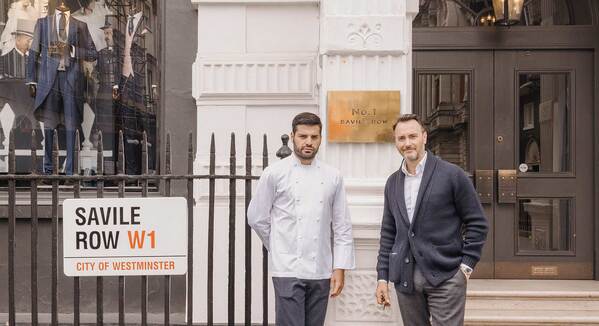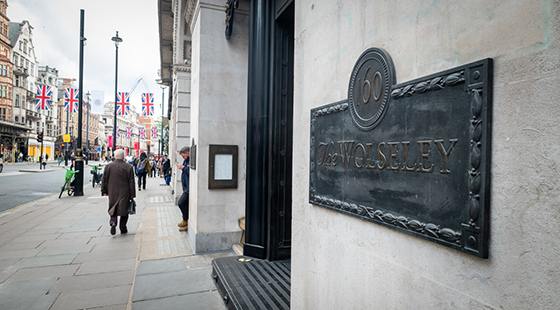Neil Rankin says it’s time to admit tastes can change and palates can adapt
It’s not the food that’s offputting, it’s your reaction to it, says Neil Rankin.
I wouldn’t really call myself a tea drinker. I drank a bit at university in Manchester because people in the north-west don’t give you much choice in the matter, but not much after. But recently I’ve become obsessed with chai and now have tins of spices and fresh ginger to make a batch for when I go on long lockdown walks. I’ve also become a big fan of Kashmiri chai.
Kashmiri chai (or noon chai) is made from gunpowder green tea with baking soda and salt. It’s creamy, pink and slightly frothy, but with a really nice, salty profile, which is delicious. What I found strange, though, is that every time I ask for it at the counter of my favourite outlet, I get a vocal and visual reluctance to serve it to me – as if they know I’m going to hate it. This isn’t supposed to be critical of them, but there are ways of doing this without framing it in a negative space. People like salt, people like spices and people like tea, so at least some people should like this…right?
It got me thinking about how some people perceive palates as a cultural phenomenon. Palates are connected to the brain, which can be rewired and reset all the time. They are easily manipulated, but that message has to come though the brain, rather than the taste buds. There was a rhetoric with which I was brought up, that Western palates differed to Eastern palates in reference to taste, spice levels and textures, and while I’m not sure it’s entirely racist in its intentions, it’s definitely ignorant.
This misunderstanding of the flexibility of palates is also, in my opinion, the number one reason we give up on children’s diets, when they say all they want is chicken nuggets and chips. The truth is that anyone can change their palates at any time. All that’s needed is to frame the food in the right place; to sell them the right product. If you sell someone a family beach holiday and they end up in a hut with no electricity and only fruit to eat for a week they’d be pissed, but if you sell that same holiday as a mindfulness retreat, you can sell it at twice the cost and maybe to the same people. I believe that works for anything. It’s all about framing and setting expectations, not the actual thing itself.
And it’s not just food: eight years ago most cocktails in the UK were really sweet, and now they’re predominantly bitter and sour, two profiles that were considered unacceptable before. Rubbery or chewy meat or fish products are still seen as too polarising, but that’s only because people have had the opposite framed as desirable for so long. Meat should “fall off the bone” or “melt in your mouth”. However, the more tender the meat, the less flavour it has.
Vegan food also suffers from that sort of negative framing when trying to sell it to carnivores. I’ve heard many a comment from intelligent people about something tasting ‘vegan’. What does vegan taste like? Vegan is not a flavour, it’s a cultural framework that either appeals or doesn’t, based on your attitude to the ethics or movement, but it’s not one flavour any more than kæstur hákarl (Icelandic fermented shark) is the flavour of fish.
I’ve heard many a comment from intelligent people about something tasting ‘vegan’. What does vegan taste like? Vegan is not a flavour
Everyone has a different cultural education in food, but in reality palates are just a sense, like sight or hearing. We all have the same eyes and ears and we all have the same palates, so let’s start framing all food from all cultures as something that can be enjoyed by everyone without condescension or assumptions. When someone says they don’t like something, they actually mean they don’t like that thing now, but they might develop a taste for it at any time – with the unique exception of kæstur hákarl, which smells like dead people.



















